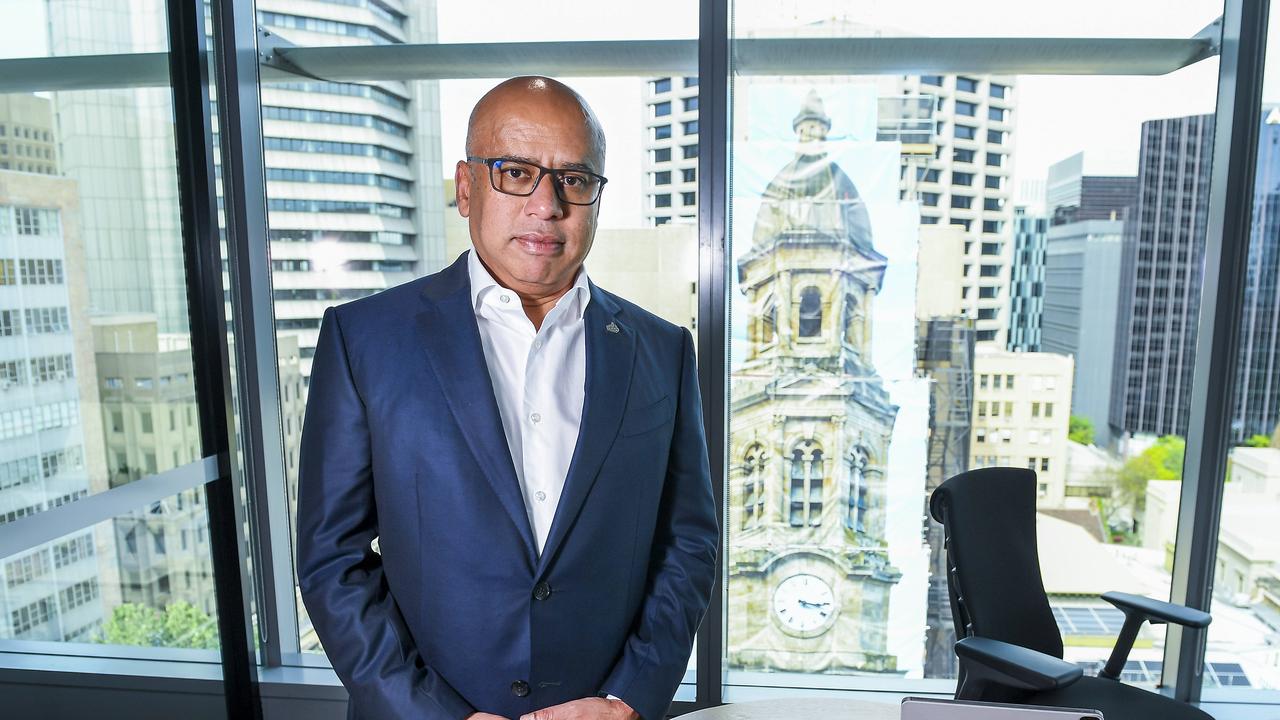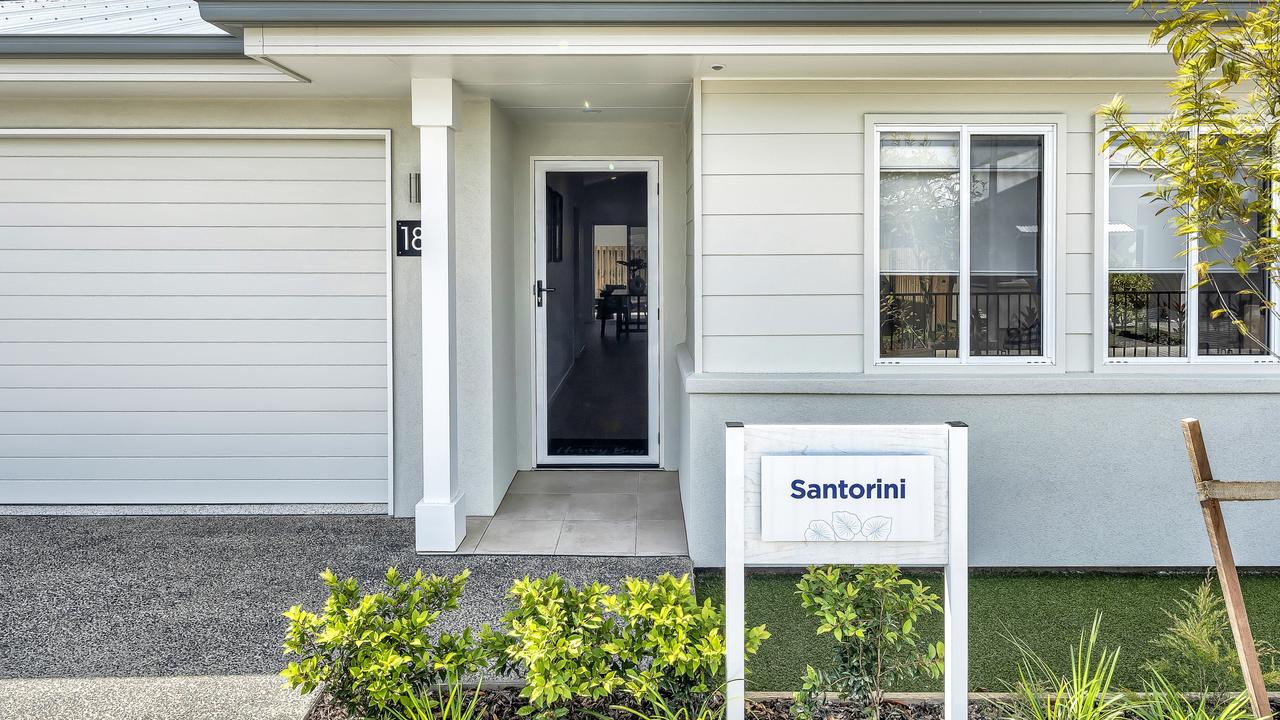Larry Kestelman clinches international NBL broadcast deal
But the businessman says the country is in for a ‘rougher ride’, and his other ventures are battening down the hatches to ‘make sure we are seaworthy for what could happen’.
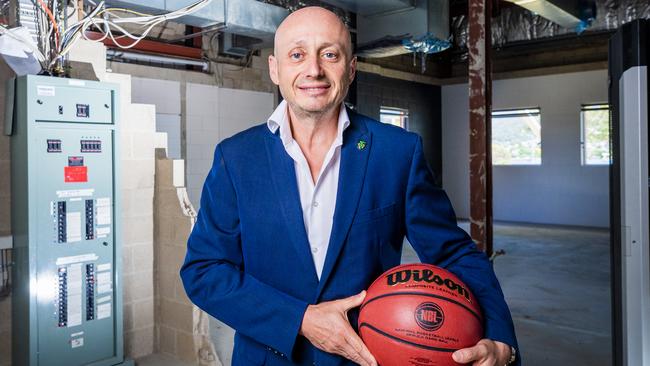
Larry Kestelman’s National Basketball League will this week sign a new broadcast deal with streaming giant DAZN to show the competition in Europe, adding to the 43 markets it is already shown in.
The NBL, which is enjoying an uplift in television ratings and crowds in Australia this season, is growing its audiences by about 30 per cent annually, according to Mr Kestelman – a figure he says is a minimum standard for the emerging competition.
“If we are not growing at 30 per cent annually then we are going backwards,” Mr Kestelman told The Australian. “We have doubled down this season and invested in our marketing team, building databases and becoming a more sophisticated business.”
The NBL is broadcast on the ESPN network carried by Foxtel and Kayo, and has some matches each weekend on Network Ten’s secondary channel.
While off a relatively low base, NBL officials say the average reach of telecasts on ESPN this season is up 40 per cent from last year. Matches for defending champions Sydney Kings have doubled in audience reach and its attendances are up 20 per cent.
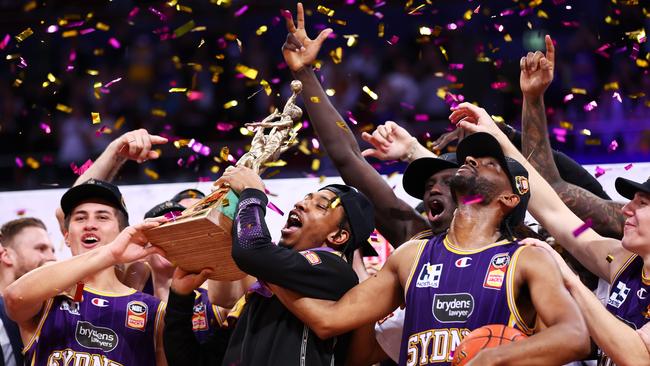
Each NBL game is averaging more than 6000 spectators, up about 25 per cent a year ago, and back to pre-pandemic levels, said Mr Kestelman. “Now we are all about growth,” he said.
DAZN, which owns rights to boxing, soccer leagues in countries like Italy and Spain and has been rumoured to be considering setting up in Australia and bidding for local sports rights, will also distribute the NBL in Canada.
“Aligning with DAZN displays the unprecedented interest in the NBL both domestically and internationally, and we look forward to continuing to grow our global reach,” the NBL’s chief commercial officer Brad Joyner said.
While Mr Kestelman owns the league, the 10 teams are owned individually – although the businessman maintains control of the Tasmanian team as it plays its first season. Mr Kestelman said he will launch a process to sell the JackJumpers to investors next year, and wants to achieve a $35m valuation that other teams in the competition have been sold at in the past two years.
But the NBL forms only part of Mr Kestelman’s business empire, which comprises a collection of retail, property and outsourcing companies that have combined turnover of about $1.5bn annually.
In a wide-ranging interview, Mr Kestelman – a member of The List – Australia’s Richest 250 – said he has delayed real estate deals due to rising construction costs and warned workers that local companies have started investigating offshoring more jobs as a result of the working at home phenomenon.
Mr Kestelman is the majority owner of BPO Acquire, an outsourcing firm with 10,000 employees in the Philippines and the Dominican Republic that operates call centres and provides back office operations such as accounts payable and other consumer services.
“Our offshoring business is getting more inquiries than ever, from the US and other countries. The conversations we are having with CEOs around the place, they are frustrated with workers not coming to the office,” Mr Kestelman said.
“I think if younger people aren’t careful there will be a slice of companies looking at offshoring more jobs. It is something that was maybe taboo 15 or 20 years ago, but it is very accepted now.
“That culture of working at home may need to be broken. I’m all for some flexibility but if everyone in the office is working remotely, then there is very little difference in having a working sitting at home 5km away or another country.”
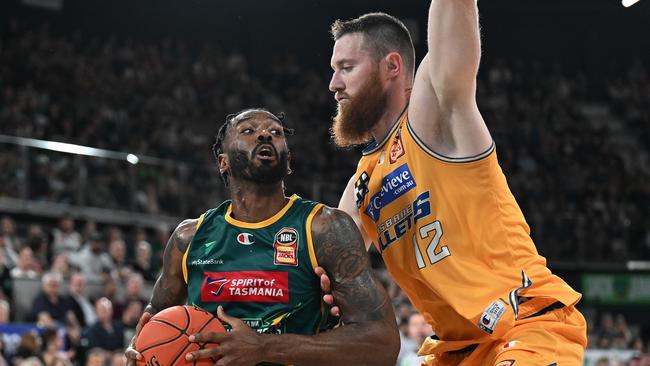
Mr Kestelman said the business has grown rapidly during the Covid-19 lockdowns since early 2020. Accounts lodged with the corporate regulator shows BPO Acquire made a net profit of $44m last year, up from $8m the previous year.
Mr Kestelman’s LK Group also owns the fashion PAS Group and footwear focused Brand Collective, both of which have brands such as Review, Black Pepper, SuperDry, Mossimo and Clarks, and is also a major property developer having built the $800m Capitol Grand in Melbourne’s South Yarra. He had plans to launch a $230m apartment project in Melbourne’s Southbank this year but had delayed its release given rising building material costs.
“We priced it, then repriced it, and costs have risen 20 per cent more than we expected. So we will wait and see,” he said. “We will also look for other sites, but so far there are no distressed sellers. With rising interest rates that may change though. With rates of 2 per cent people were happy to sit on their vacant sites, but with rates going to 6 per cent or more there may be sellers.”
Mr Kestelman said rising inflation had still not had a marked effect on his retail businesses but added he felt there was a general “calm before the storm” for the wider economy.
“We’re all talking about the storm coming, but it hasn’t hit yet. Next year we could be in for a rougher ride, so we are making sure to batten down the hatches across our businesses and make sure we are seaworthy for what could happen,” he added.
“I’m optimistic if employment levels remain high, but if unemployment rises then I think there will be problems.”






